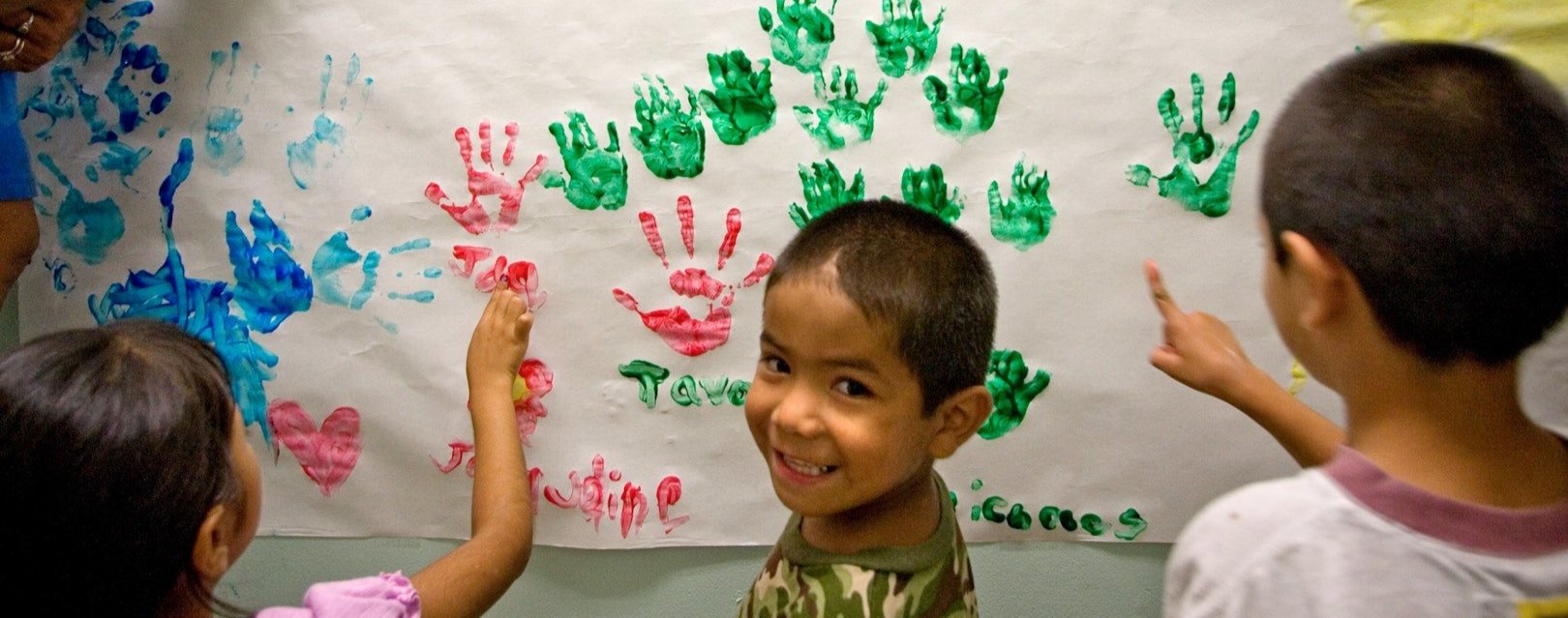
Children’s Classes
Children’s classes help their young participants to learn virtues and spiritual qualities like truthfulness, compassion, and a strong sense of justice. Great attention is given to developing these beliefs, habits, and behaviors that help children flourish and develop a strong sense of identity as moral beings and active protagonists in their family life and communities. Lessons for children’s classes begin at age 5 and continue until age 11.
Why do children need spiritual education?
At school, children spend years learning about the sciences, humanities, and arts, but spiritual and moral education – learning how to be a good and noble human being — is missing. If we believe children need guidance to develop to their true potential academically, how can we expect them to learn about their spiritual nature unaided? When children are left alone to develop their own moral standards and principles, they will be swept up in the chaotic patterns of belief and behavior they see in the society around them. All of humanity needs divine guidance to move beyond the current injustice and suffering in the world around us.
Spiritual concepts and principles are central to the program of child education developed by the Ruhi Institute, a nonprofit organization founded in rural Colombia that draws inspiration from the Baháʼí teachings. The program is open for children of all backgrounds to participate. The purpose of these children’s classes is not to impose specific religious dogma, but to foster in children a love for knowledge, an open attitude towards learning, and a constant desire to investigate reality in all its dimensions, including its spiritual dimension.
What do children learn?
Lessons for Grade 1 are focused on virtues, with the goal of building a strong moral character. We believe all children are created noble, and through education every child can develop all the latent spiritual qualities God has bestowed on us – qualities like love, truthfulness, justice, generosity, steadfastness, and sincerity. Each lesson in grade 1 is focused on one such virtue.
Grade 2 builds on these lessons by fostering habits and patterns of conduct based on the qualities children learned about in Grade 1. It opens by introducing the habit of praying – a habit that helps us become closer to God and draw on God’s aid and assistance. It explores themes such as “seeking knowledge”, “being a good friend”, “devoting one’s life to service”, “living in harmony with others”, and the importance of obeying laws and rules created to protect us.
Grades 3 and 4 turn to the importance of knowledge and how, in order to consciously work for your own spiritual development, you must seek out knowledge and be connected to the source of spiritual knowledge – God. It introduces the idea of Manifestations of God – the holy beings who bring God’s guidance to humanity. Children explore the lives, missions, and teachings of many Manifestations, including Moses, Krishna, Buddha, Zoroaster, Jesus Christ, Muhammad, The Báb, and Bahá’u’lláh.
The materials for Grades 5 and 6 are still under development.
What’s a children’s class like?
Learning should be joyful. Deep concepts are introduced to children through uplifting prayer, music, learning and memorizing inspiring quotes, storytelling, arts, cooperative games, and drama. Throughout this process, children improve their vocabulary, reading, and memorization, and ability to express and share complex ideas in various ways.
Most children’s classes meet once a week for 1-2 hours, in groups of 5 or more students. Teachers are local volunteers from diverse backgrounds – often youth or young parents – who wish to give back to the community. Teachers are trained, work together, and are background-checked to ensure the safety of children. Since classes only meet once a week – and parents are foundational to the education of their children – teachers try to collaborate with parents to reinforce and practice the ideas learned throughout the week at home.
Contact us to find a children’s class in your area or to become trained as a teacher.

